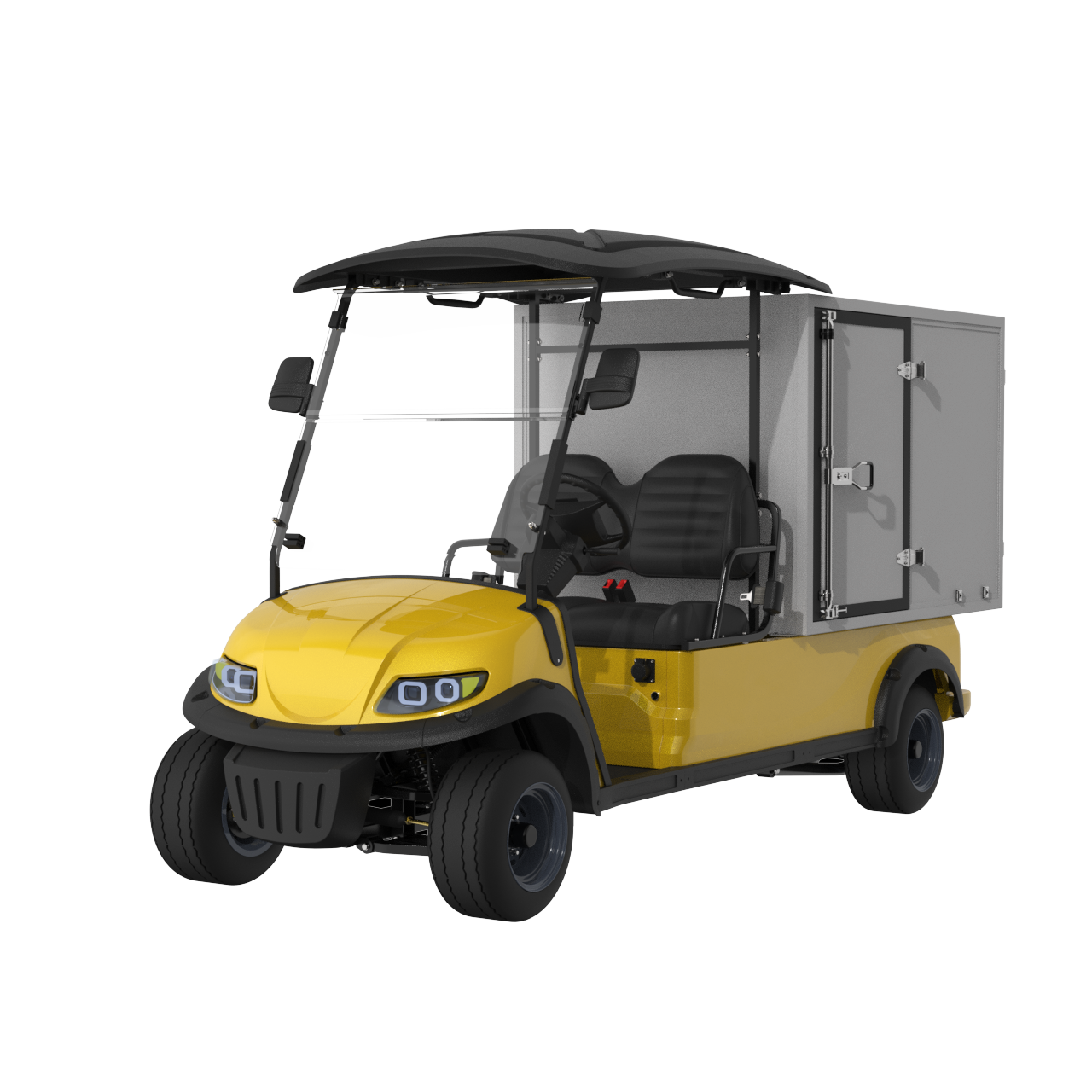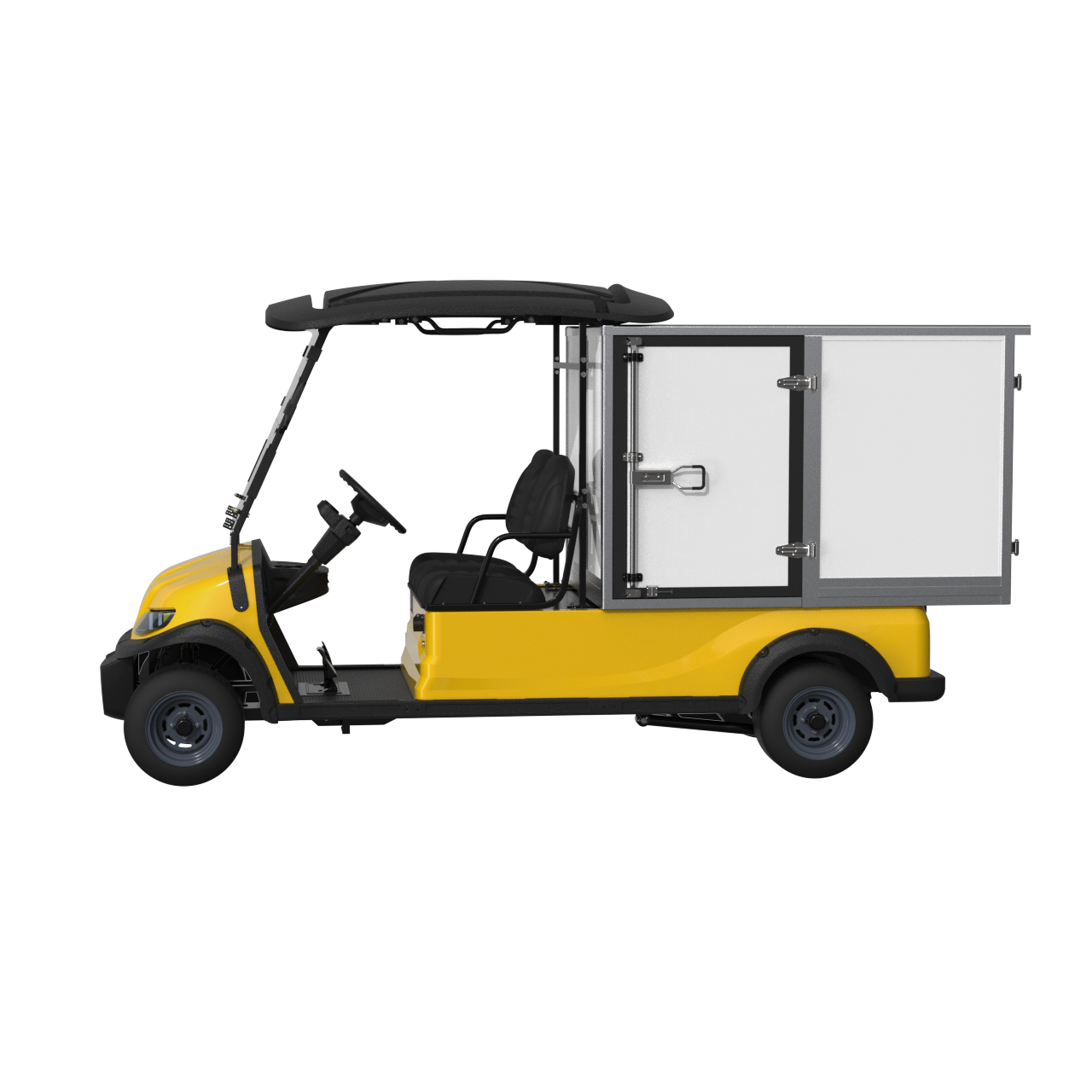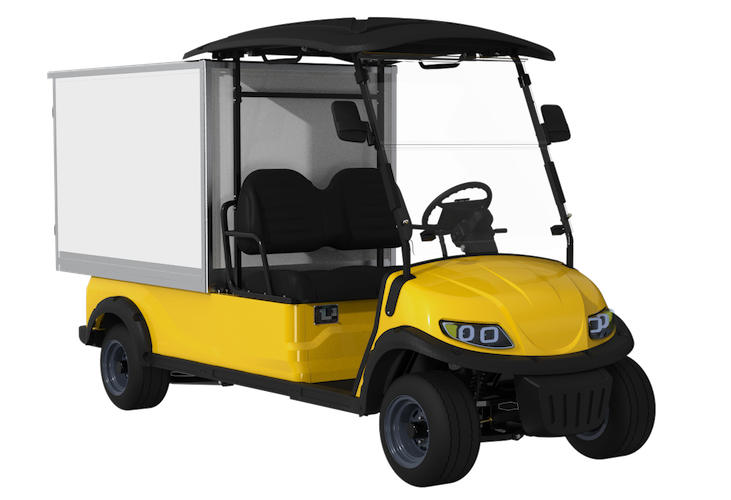Content Menu
● The Unique Role of Electric Mini Trucks in Japan
● Major Electric Mini Truck Manufacturers and Suppliers in Japan
>> Honda
>> Mitsubishi Motors
>> Daihatsu
>> Toyota
>> KG Motors
>> Mitsubishi Fuso
>> Nissan
>> BYD
>> Valeo Japan (in partnership with Gunma University)
>> TS EXPORT and MiniTrucks.net
● Why Electric Mini Truck Manufacturers and Suppliers Are Flourishing
● Innovation in Electric Kei Truck Design
● The Future of Electric Mini Truck Manufacturers and Suppliers
● Conclusion
● Frequently Asked Questions
>> 1. What is a Kei truck, and how is it different from other electric mini trucks?
>> 2. Why are electric mini trucks so popular in Japan?
>> 3. What subsidies or incentives exist for buying electric mini trucks in Japan?
>> 4. Are Japanese electric mini trucks available for export?
>> 5. How far can most electric mini trucks travel on one charge?
As electric vehicle adoption accelerates worldwide, Japan is emerging as a powerhouse of compact, eco-friendly utility vehicles tailor-made for dense urban environments. In particular, electric mini trucks—known locally as electric Kei trucks—are gaining rapid popularity for logistics, agriculture, business fleets, and urban delivery. This article explores the landscape of Electric Mini Truck Manufacturers and Suppliers in Japan, highlighting their innovations, flagship models, and the market trends shaping the future of mobility.

The Unique Role of Electric Mini Trucks in Japan
Electric mini trucks are the lifeblood of Japan's city logistics and rural industries. Unlike full-sized trucks, their compact size allows for easy maneuvering through narrow streets and crowded urban areas. These vehicles offer a unique blend of efficiency, utility, and sustainability—making them especially appealing for last-mile delivery, construction work, and daily commuting.
Japan's tradition of “Kei” (軽) vehicles sets the standard for these compact trucks. Electric Kei trucks combine the environmental benefits of zero emissions with the practical, affordable design that has made Japanese vehicles renowned worldwide. This unique vehicle class benefits from lighter regulations, tax incentives, and insurance benefits, which further drive their popularity within Japan and increasingly abroad.
Small businesses, farmers, delivery companies, and even municipalities use electric mini trucks for their versatility, lower operating costs, and ability to reduce overall carbon footprints. These trucks are gradually replacing traditional gasoline-powered vehicles, especially as Japanese government subsidies and emissions regulations become stricter.
Major Electric Mini Truck Manufacturers and Suppliers in Japan
Honda
Honda stands out as a major innovator, recently launching the N-VAN e:, their new commercial-use mini-EV. Set for release across Japan in 2024, the N-VAN e: retains Honda's legacy of spacious, open interiors, with added features unique to EVs such as power output functionality and a whisper-quiet cabin. The model offers a competitive range of 245 kilometers and is targeted toward businesses needing agility and reliable cargo space.
The N-VAN e: is designed with multifunctional interiors that can be configured for cargo or passenger use and supports external power supply to operate tools or devices, making it especially appealing for tradespeople and remote work settings. Its environmentally friendly profile aligns with Japan's goals to reduce urban pollution.
Mitsubishi Motors
Mitsubishi's Minicab EV is a benchmark for Japanese-made electric mini trucks. The current Minicab EV inherits the traditions of Mitsubishi's original Minicab-MiEV series, offering a low cost (around 2,486,000 yen for the four-seater variant), decent range (approximately 150 km per charge), and practical cargo capability. This truck is notably popular among small businesses and delivery services requiring a durable, zero-emission fleet.
Mitsubishi continues to refine battery performance and charging infrastructure compatibility, ensuring the Minicab EV remains competitive. It offers a balance between performance, price, and practical loading solutions suited to both urban and rural logistics.
Daihatsu
Daihatsu is renowned for its extensive Kei truck lineup. The company has recently previewed electric variants such as the electric Uniform Truck and Uniform Cargo at major auto shows. These models emphasize a new generation of EVs optimized for small businesses and urban customers.
Daihatsu focuses on ultra-flat floors, low step-in heights, sliding doors for ease of access, and modular cargo spaces that allow operators to adjust the vehicle based on their needs. This flexibility, combined with electric powertrains, ensures these trucks can serve various industries—ranging from agriculture to hospitality efficiently.
Toyota
Toyota, a world leader in automotive innovation, has entered the electric mini truck market both directly and through strategic collaborations. Their electric Kayoibako concept van exemplifies Toyota's vision for future urban transport—featuring customizable interiors, easy entry, and state-of-the-art EV technology.
Toyota's approach combines lessons learned from their hybrid technology success and hydrogen fuel cell research while adapting them to small vehicle formats. Because Toyota is early in the electric Kei truck segment, the industry watches its next steps carefully, expecting a blend of reliability, safety, and performance.
KG Motors
The Japanese startup KG Motors has brought fresh energy to the market with the mibot, a single-seat electric mini vehicle designed primarily for urban lifestyles. Comparable in size to a golf cart, the mibot delivers excellent affordability (around $7,000), simplicity, and efficiency. It caters perfectly to short daily commutes, rapid deliveries, and tight urban navigation.
The mibot's minimalist design and low operating costs appeal to individuals and businesses tasked with last-mile logistics, delivering small parcels or food orders in congested cities where bigger trucks cannot easily operate.
Mitsubishi Fuso
A subsidiary of Daimler, Mitsubishi Fuso is a key supplier of electric trucks, notably the eCanter—a light-duty, all-electric vehicle designed for urban and suburban delivery services. The eCanter has gained traction through early adoption by major logistics firms, offering a range of around 100 km per charge and practical cargo capacity.
Mitsubishi Fuso's commitment to electrification extends to heavy-duty truck segments, reinforcing their leadership in creating sustainable commercial transport solutions in Japan and abroad.
Nissan
While primarily recognized for passenger vehicles, Nissan has made significant strides in electric mobility with the Sakura, the best-selling electric Kei car in Japan. Nissan's ongoing investments in EV technology signal potential expansions into electric mini trucks and vans, which could become a key element of their commercial vehicle lineup.
Nissan combines their extensive EV expertise and manufacturing prowess with market demand to potentially capture more share within the electric mini truck segment in the near future.

BYD
China's BYD, an international leader in electric vehicles, is increasingly present in the Japanese market, supplying affordable and efficient electric delivery vans tailored for urban logistics in Japan. Their vehicles compete with domestic models on price and range, expanding options for Japanese consumers and businesses looking for green vehicle alternatives.
BYD's entry into Japan intensifies competition and fosters innovation among local manufacturers, benefiting the entire industry ecosystem through technological cross-pollination.
Valeo Japan (in partnership with Gunma University)
In an innovative collaboration, Valeo Japan and Gunma University developed Japan's first 48V EV 4WD Kei truck. This vehicle combines efficient electric mobility with robust four-wheel-drive capability, designed specifically for in-plant logistics, last-mile deliveries, and industrial applications requiring rugged but compact vehicles.
This partnership showcases how academia-industry collaboration can accelerate technological breakthroughs in niche vehicle applications unserved by mainstream models.
TS EXPORT and MiniTrucks.net
In addition to manufacturers, specialized suppliers and exporters such as TS EXPORT and MiniTrucks.net play critical roles in connecting new and used electric mini trucks to domestic and international buyers. They source vehicles from auctions, dealerships, and end users, offering broad access to various makes and models.
These suppliers facilitate the international adoption of Japanese electric mini trucks, enabling businesses globally to avail themselves of Japan's compact EV technology via import channels.
Why Electric Mini Truck Manufacturers and Suppliers Are Flourishing
The proliferation of electric mini truck manufacturers and suppliers in Japan is a direct response to rapidly changing urban dynamics:
- Urbanization: Japan's densely packed cities require small vehicles that can easily traverse narrow roads and crowded districts.
- Sustainability Goals: Government subsidies and regulations encourage lower-emission fleets and clean energy solutions.
- Logistics Boom: E-commerce and same-day delivery have ramped up demand for efficient, agile delivery trucks.
- Affordability: Kei trucks benefit from tax incentives, low operating costs, and government subsidies that significantly lower the purchase price.
- Export Demand: Affordable and reliable Kei trucks are gaining popularity outside Japan, particularly as businesses seek green fleet options worldwide.
These factors collectively explain the rapid advancement and growing sales of electric mini trucks, with suppliers developing increasingly innovative models to meet niche requirements ranging from urban delivery to rural agriculture.
Innovation in Electric Kei Truck Design
Japanese manufacturers are not only improving battery range and charging speed but also reimagining cabin space, safety, and driver comfort. Models such as the Minicab EV and N-VAN e: demonstrate modern design trends:
- Flat floors and high ceilings for easy cargo loading
- Modular and convertible interiors suitable for passengers or goods
- Advanced driver assistance systems for safety and urban traffic navigation
- Power output functions allowing trucks to power tools or appliances directly from the battery pack
Emergent players like KG Motors and academic-industry partnerships such as Valeo x Gunma University demonstrate consistent innovation in niche applications—including all-terrain use, “mobility robots,” and customized last-mile delivery vehicles.
The Future of Electric Mini Truck Manufacturers and Suppliers
Looking forward, continued technological innovation, government policy support, and international cooperation are expected to drive growth. Japanese, Chinese, and international suppliers recognize the lucrative opportunities in Japan's expanding EV market, especially as urban carbon neutrality deadlines approach.
- Major logistics companies are committing to all-electric delivery fleets.
- Aging gasoline-powered mini trucks in rural regions are being replaced with zero-emission alternatives.
- Japan's impeccable reputation for quality and affordable engineering positions its manufacturers as global trendsetters in compact EV adoption.
Historically, Kei trucks serve local needs; however, their electric versions show potential to disrupt global markets where small EVs are gaining traction for urban logistics and commercial use due to their cost-effectiveness and environmental benefits.
Conclusion
Japan's electric mini truck manufacturers and suppliers are redefining urban and rural mobility through innovation, affordability, and a steadfast commitment to sustainability. From established automotive giants like Honda, Mitsubishi, and Daihatsu to nimble startups such as KG Motors and international collaborations, Japan's compact EV segment remains strong and vibrant.
As demand for efficient logistics, green fleets, and smart urban transport rises, Japanese electric mini trucks not only lead domestically but also set global benchmarks for reliability and value. Their continued evolution promises healthier environments, better business outcomes, and improved urban living standards in Japan and beyond.

Frequently Asked Questions
1. What is a Kei truck, and how is it different from other electric mini trucks?
Kei trucks are a specific Japanese vehicle category defined by small size, engine displacement, and weight restrictions, allowing for easier regulation and tax benefits. Electric mini trucks that conform to Kei standards enjoy lower taxes, insurance benefits, and preferential access to narrow urban roads, enabling their widespread utility in Japan's unique urban landscape.
2. Why are electric mini trucks so popular in Japan?
Japan's highly urbanized environment—with narrow streets, limited parking, and tight delivery schedules—makes compact, maneuverable vehicles essential. Electric mini trucks provide a zero-emission alternative that reduces urban pollution, supports sustainability goals, and lowers operating costs, appealing to businesses and individual users alike.
3. What subsidies or incentives exist for buying electric mini trucks in Japan?
Japan offers various government subsidies and incentives to encourage the adoption of electric vehicles, including Kei trucks. These include purchase subsidies, tax reductions, lower registration fees, and exemptions from certain traffic regulations, particularly benefiting commercial users aiming to reduce their fleet's environmental impact.
4. Are Japanese electric mini trucks available for export?
Yes, many Japanese manufacturers and suppliers facilitate exporting new and used electric mini trucks worldwide. Exporters provide vehicles suitable for international markets, enabling overseas fleet operators and businesses to leverage Japan's advanced compact EV technology.
5. How far can most electric mini trucks travel on one charge?
Electric mini trucks have ranges that vary widely between models—from around 60 km for smaller industrial vehicles up to approximately 245 km for large-battery models like Honda's N-VAN e:. Most vehicles are optimized to meet typical daily urban delivery distances while supporting fast-charging capabilities for operational efficiency.










































